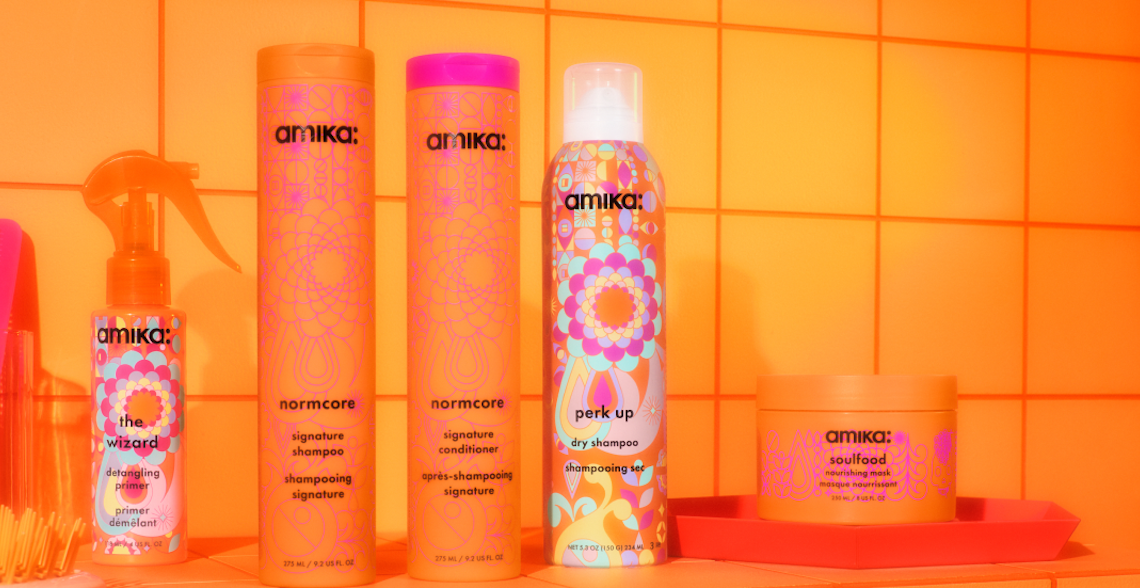With a sunnier outlook on the economy in recent months and notable successful IPOs from consumer companies — think: Mediterranean food chain Cava and beauty company Oddity Inc. — the late-stage startup world is ready to get back to the business of growing. At the same time, big-ticket purchases of Aesop and Tom Ford by L’Oréal Group and The Estée Lauder Companies, respectively, have buoyed the M&A sector. And the private investment industry has taken notice.
In late July, consumer investment private equity firm Bansk Group announced the final close of its inaugural fund, Bansk Fund I LP, at $800 million. Bansk now manages approximately $1.5 billion in assets and typically targets investments of $100 million to $400 million of equity in profitable and growing businesses. Its portfolio includes hair-care brand Amika, Eva NYC and waterless sustainable beauty brand Ethique.
Chris Kelly, a partner at Bansk Group, spoke with Glossy about the firm’s investment philosophy, the exciting business growth opportunity in professional hair care, and his outlook for the M&A and IPO space.
What’s the investment philosophy of Bansk?
“When we started the business [in 2019], the goal was to create a place to build what we call ‘distinctive CPG brands.’ We wanted to assemble a team with investors and former business operators who understood the categories where we make investments, like personal care, and could really be experts in the room when the time came to make important decisions that weren’t just related to investing. But I would not call us an overly hands-on firm, because we do not want to be involved in every operational decision. The critical thing for us is that we want to align with management teams early with a vision for the business and a plan to get there. We want to make investments against the themes that we’re excited about. And sometimes that’s a company where we can invest $100 million, and sometimes it’s a company where we can invest $600 million.”
What defines a ‘distinctive’ brand?
“The beauty and personal care market is extremely dynamic, so there’s a lot of innovation at all times. There’s a chance, therefore, when [investors] become consumed with a trend that may not be a long-term focus of the consumer. What we mean by ‘distinctive’ is a brand that has stood out from its peers and has demonstrated its ability to do that consistently. In the context of a beauty company, it often means that the brand and its products are efficacious and have a unique or strong emotional connection to the consumer. They can bring both science and the exciting results that a consumer is looking for and a really strong bond with that consumer. Maybe they’re bonding over the brand values or something else.”
Ad position: web_incontent_pos1
What’s an example of a brand in your portfolio with these features?
“The largest brand we have today is Amika, a prestige hair-care brand. What is special about the business is our incredible connection with the consumer; the brand is built around an ethos of inclusiveness. It speaks to our consumers and the professionals in the styling space who get inundated by brands and are spoiled for choice. The continued interest of the hair-care consumer in more premium products has been compelling. And it’s a tailwind that we believe in strongly.”
What about Amika’s connection to the professional channel?
“Professional distribution is a compelling way to build a business within hair care. Your stylist is someone you see with enough regularity and someone who has enough authority that a trusting relationship becomes very powerful from the viewpoint of the consumer willing to adopt your product. What’s interesting now is that you have brands that don’t have the heritage in pro trying to go into the pro channel. The jury’s is out on how that will go. Building a consumer-facing brand first versus a pro-facing brand has different advantages. But one of the advantages of starting focused on pros is that you are responding to their needs and what they care about. Amika not only has great products, but it also offers great education about using them. It’s a very different channel, and you have to bring value to the pro if you’re going to be successful there.”
What are the biggest challenges to the beauty industry right now?
Ad position: web_incontent_pos2
“The global challenge that beauty and personal care always has is that you are in a changing environment. Other categories that we invest in don’t change as rapidly; the consumer’s wants or needs evolve over the years, while beauty and personal care happen more quickly. The key for beauty brands is knowing how to stay true to your brand, what your products are supposed to do, and how to delight your consumers and anticipate consumer needs. The shorter-term challenge is volume and inventory shifts in one direction or another, or when certain retailers are not doing as well as others. Often, it’s an iteration of the same classic business problems we always have.”
What’s your outlook on the M&A and IPO markets?
“We’ve seen a handful of proof points that the public market isn’t closed for businesses that are perceived as high quality. There have been a few IPOs, and those IPOs are priced richly. Frankly, the pressure will be on for any company that IPOs to show strong performance over the next handful of quarters. Hopefully, they will and it will continue to buoy the spirits of IPO investors. The M&A market is similar. We’ve had fewer companies for sale this past year, but when high-quality companies like Aesop have been sold, they’ve merited strong outcomes. We’ll probably have one or two more before the end of the year which are really strong outcomes for the sellers. The multiples [of revenue] are still compelling for sellers.”




